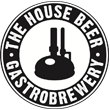30 Sep The Indicators of Diabetes: Recognizing the Symptoms
Diabetic issues is a persistent health and wellness condition that influences countless people worldwide. It happens when the body is incapable to manage blood glucose degrees properly. This can be due to either a lack of insulin manufacturing or the body’s failure to utilize insulin properly. While there are different sorts of diabetic issues, each with its own details causes and therapies, they share many usual signs and symptoms. By recognizing these signs early on, people can look for suitable medical interest and better handle their problem.
Enhanced Thirst and Urination
One of the telltale signs of diabetic issues is boosted thirst (polydipsia) and regular peeing (polyuria). When blood sugar degrees are high, the kidneys work harder to remove excess sugar from the blood. This excess glucose draws a lot more water from the body, causing increased thirst. As a result, individuals with diabetic issues may locate themselves consuming alcohol more liquids and subsequently requiring to use the toilet a lot more frequently. If you discover a substantial increase in thirst and peeing, it might be worth going over with your healthcare provider.
Furthermore, people with diabetic issues might experience nocturia, which is the demand to pee regularly throughout the evening. This can interfere with sleep and add to sensations of tiredness and exhaustion.
Unexplained Weight Reduction or Gain
Unusual weight reduction can be an indicator of diabetic issues, specifically in individuals with kind 1 diabetes mellitus. This occurs when the body is incapable to make use of sugar for energy and begins to break down fat and muscle mass rather. Therefore, people might experience significant fat burning, in spite of having a regular or boosted appetite. On the other hand, inexplicable weight gain can be a sign of kind 2 diabetes mellitus. Insulin resistance can bring about weight gain, especially around the abdominal area.
If you notice substantial and inexplicable modifications in your weight, it is a good idea to seek advice from your doctor to dismiss any underlying clinical conditions, including diabetes mellitus.
Severe Cravings and Exhaustion
Feeling hungry all the time, also after consuming, can be an indicator of diabetes mellitus. When the body is not able to make use of sugar for energy, it can lead to a consistent sensation of cravings. This is particularly common in individuals with type 1 diabetes mellitus.
In addition to extreme cravings, individuals with diabetes may additionally experience persistent fatigue. The inability to manage blood sugar level appropriately can prevent cells from getting ample energy, bring about feelings of exhaustion and weak point.
Slow Recovery of Wounds
Diabetes mellitus can affect the body’s capability to heal wounds and infections. High blood sugar degrees can damage capillary and harm the immune system, making it harder for the body to combat off infections. This can result in sluggish injury healing, regular infections (such as urinary system infections or skin infections), and extended recuperation times.
If you see that cuts, bruises, or sores are taking much longer than common to heal, it might deserve talking about with your doctor to figure out if diabetes could be a contributing factor.
Prickling Feelings or Numbness
Nerve damage, or neuropathy, is a typical problem of diabetes mellitus. This can result in prickling experiences, feeling numb, or a “pins and needles” sensation, generally in the hands, testoy dragan primorac feet, legs, or arms. In time, neuropathy can also result in a lot more severe difficulties, such as foot ulcers and even amputation in severe situations.
If you experience any unusual experiences or feeling numb in your extremities, it is essential to speak with your healthcare depanten gelis provider to examine the underlying reason and avoid further difficulties.
In Conclusion
Recognizing the signs and symptoms of diabetes mellitus is important for very early medical diagnosis and reliable administration. If you experience increased thirst and urination, unexplained weight-loss or gain, severe hunger and fatigue, slow-moving wound recovery, or tingling feelings or numbness, it may be an excellent concept to speak with your doctor. Keep in mind, very early detection and proper administration of diabetes can substantially boost long-term health outcomes and quality of life.


Sorry, the comment form is closed at this time.